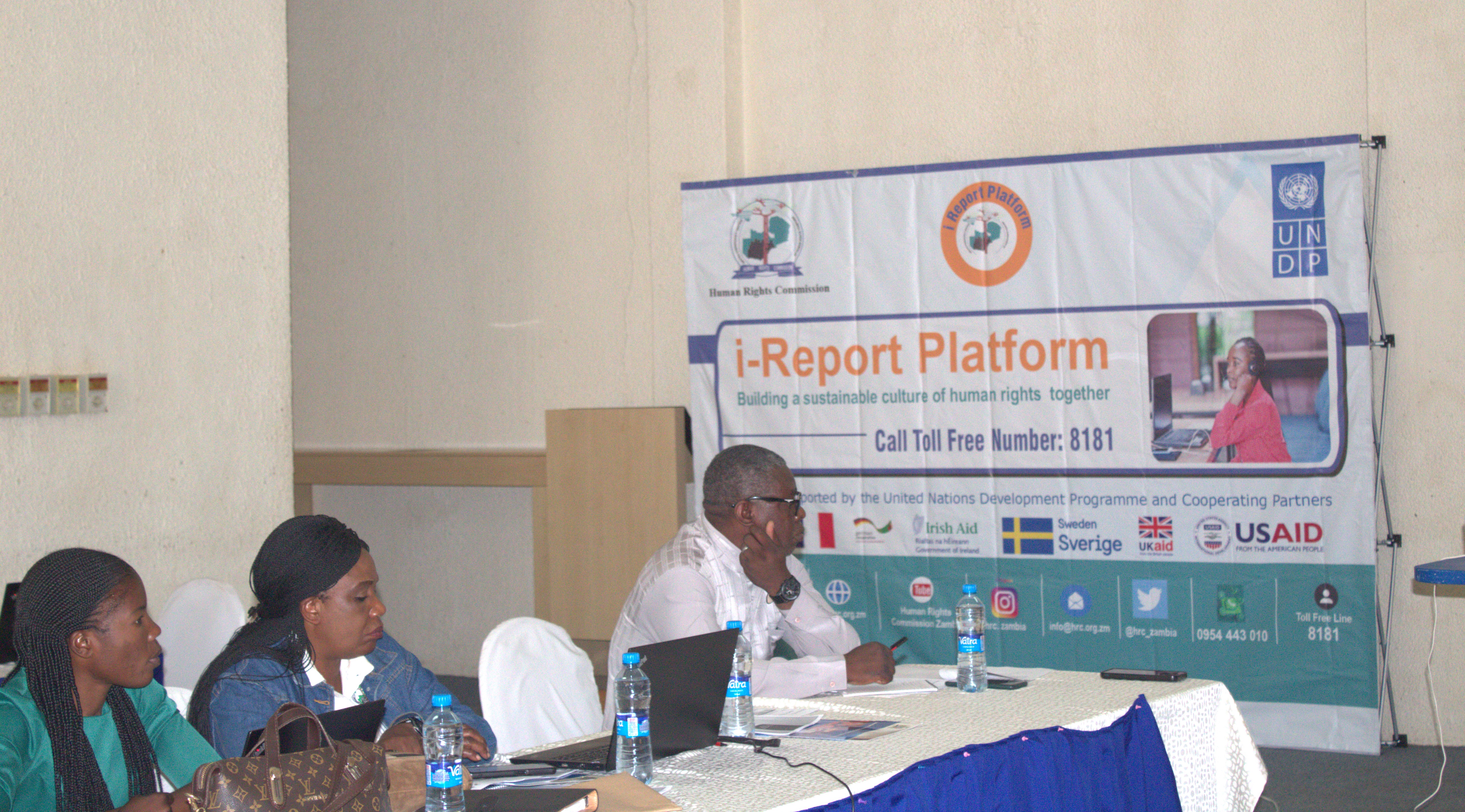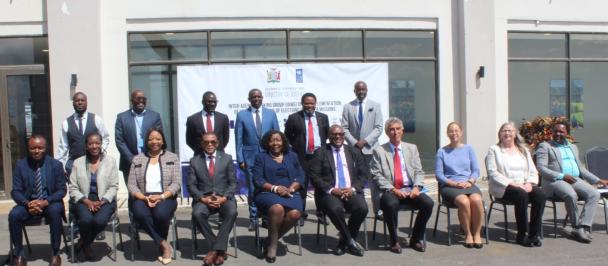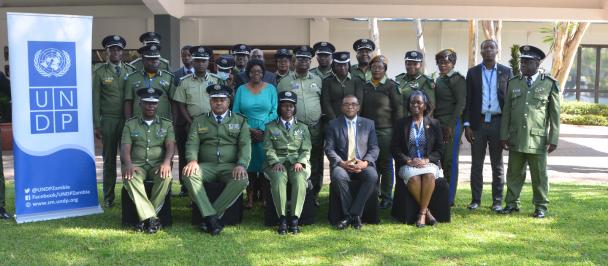iReport: UNDP’s Support to Building a Sustainable Human Rights Culture in Zambia
June 1, 2023

Staff of the Human Rights Commission attending the i-Report Case Management System Trainer of Trainers workshop in Kabwe
The Human Rights Commission (HRC) has established a new case management system for reporting human rights violations across the country. The i-Report case management system is part of UNDP’s support to the Early Warning and Early Response System (EWERS) against electoral violence under the Democracy Strengthening in Zambia (DSZ) Project.
In in the lead up to and during the 2021 general elections, UNDP partnered with the HRC to develop and deploy an EWERS that sought to identify hotspots for electoral violence and mobilise responses from institutions such as the Zambia Police, Electoral Commission of Zambia, and Human Rights Commission to institute counter measures to prevent or de-escalate violence.
Post elections, for sustainability and consolidation of the investment in the EWERS, there was an identified need to domesticate the system in the day-to-day operations of the organisation, hence the redesigning of the system to include a human rights case management module. Inter alia, this would provide a clear and straightforward method for monitoring and follow-up. ensuring efficiency and accuracy in the HRC's day-to-day operations.
UNDP commissioned the United Nations International Computing Centre to develop the EWERS with the technical support of UNDP-European Commission Joint Task Force on Electoral Assistance (JTF). In June, a trainer of trainer’s workshop was conducted for key HRC staff on the case management module. Thereafter, the HRC rolled out the training to all the provinces and districts targeting civil society/community-based organisations and human rights defenders. On completion of the training, participants were accredited to operate the system and report cases of human rights violations across all the 116 districts of the country. In total, 232 human rights defenders and champions were accredited.
The roll out to the districts to HRC stakeholders/implementing partners collectively referred to as human rights champions will scale up and promote a human rights culture across the country.

 Locations
Locations



